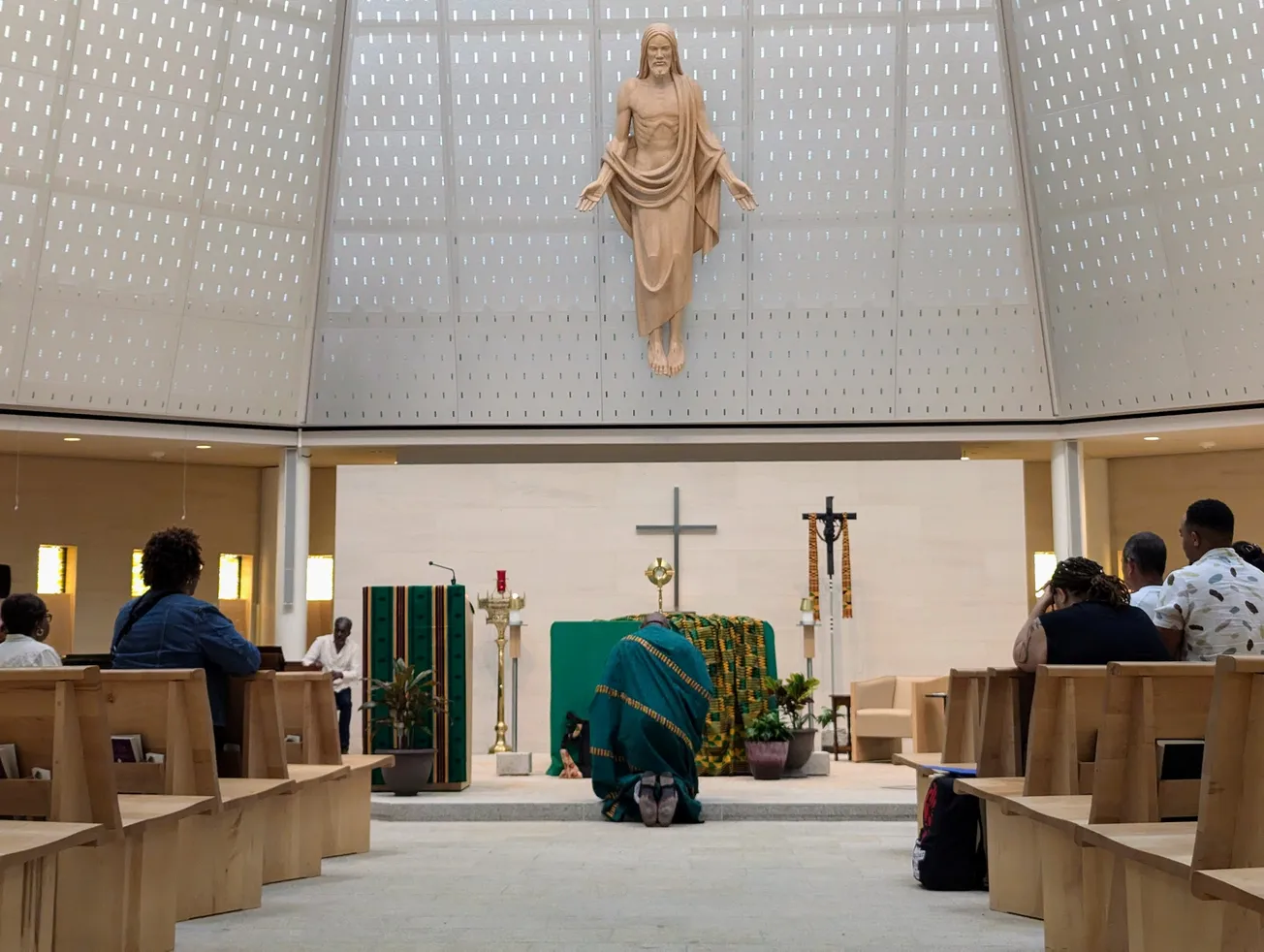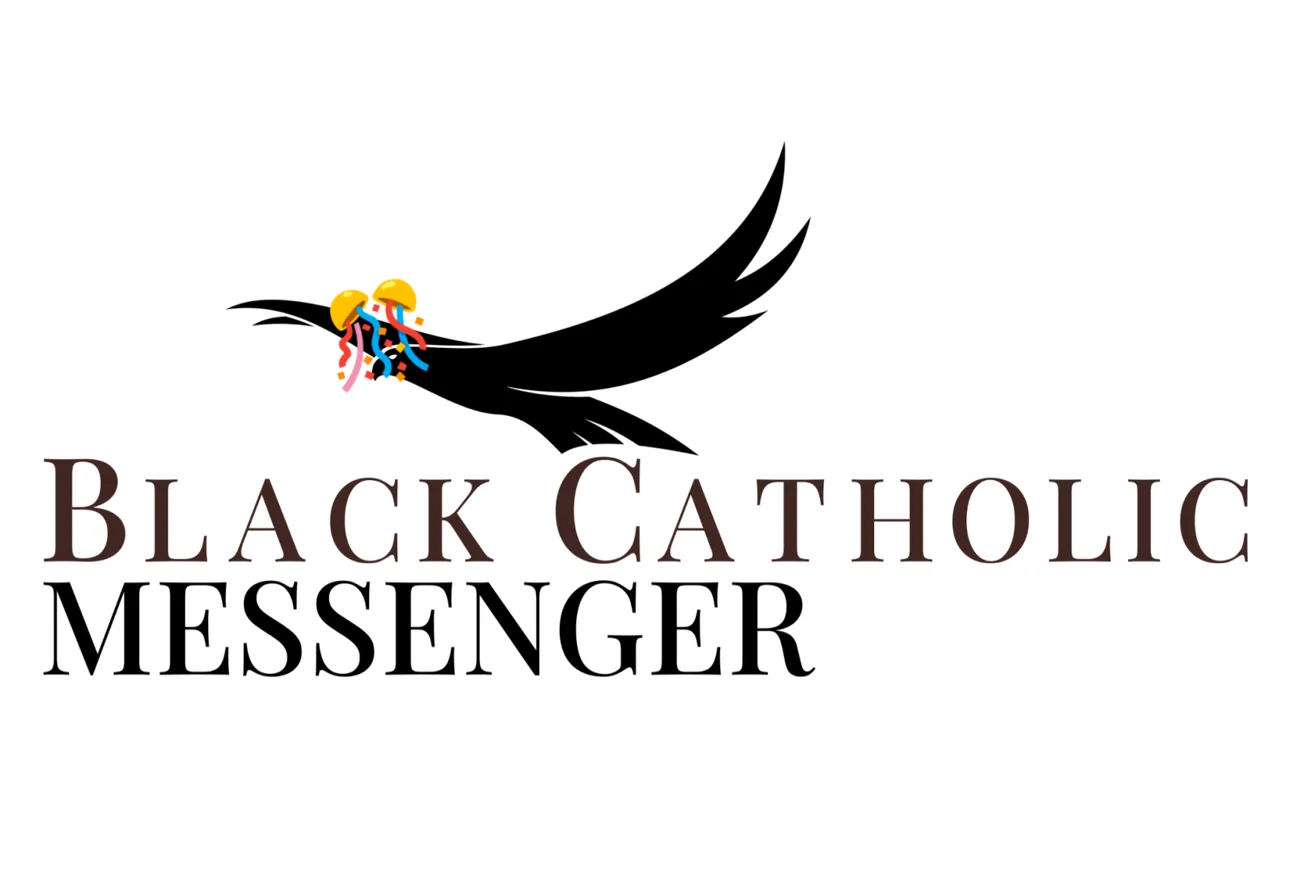NEW ORLEANS — The spirit of Eucharistic Revival was in the air on Monday at Xavier University of Louisiana, where the Institute for Black Catholic Studies (IBCS) is hosting its 45th annual session with students, faculty, and staff from around the country.
Their weekday schedule of Mass was interrupted to take part in the bishops’ nationwide movement meant to inspire confidence in the Real Presence, a doctrine honored in unique ways among many in the African-American community.
Scripture, African dance, gospel music, and acclamations of Black Catholic history enlivened a meditative Holy Hour taking place between classes in the IBCS master’s degree program and continuing education cohort. The programs annually draw students training for ministry in the Black Catholic community and seeking immersion in the African-American tradition as it has developed within the Church.
This year, the IBCS’ three-week program runs through July 19, overlapping with the National Eucharistic Congress, the culmination of two years of revival, the first focused at the diocesan level and the second in local parishes. The Congress will take place from July 17-21 in Indianapolis and is expected to draw upwards of 50,000 attendees.
“We wanted to do something here to be in solidarity with them,” said Fr Mark Enemali, a Spiritan priest who is teaching a master's degree course this year in the IBCS.
The mini-revival held in St. Katharine Drexel Chapel on XULA’s campus brought together traditions from across the diaspora, many of which are represented among the IBCS students themselves—whose ancestry spans not only America but also Haiti, Nigeria, Kenya, Eritrea, the Caribbean, and beyond.




Scenes from the Eucharistic Revival at the 45th session of the Institute for Black Catholic Studies at Xavier University of Louisiana in New Orleans. (Nate Tinner-Williams)
“We have been hungry for so long, yet knowing that our hunger is filled by Jesus. The Real Presence of Jesus in the Eucharist,” said Dr. Kim Harris of Loyola Marymount University, another IBCS professor, during history-driven remarks she delivered during Adoration.
Harris recounted that from the time of Black Catholic contact with what would become the United States, in the early 16th century, interwoven forces of slavery, racism, and prejudice have attempted to dampen the dignity of African-descended peoples within the Church and without.
She went on to share insights that align well with the third year of the National Eucharistic Revival, which after the Congress will focus on “missionary sending,” a concept that has been linked by the bishops to the work of charity and evangelization. Harris spoke of the need for uplift among African Americans in the Church, who often perceive continued mistreatment from their fellow religionists.
“We are still hungry in our old church, where people say our culture is not Catholic. When our places of worship are closed down instead of sending out more people to give the message that we have the presence of Jesus. That Jesus is with us,” Harris preached.
“We are hungry and we have that Black joy that we have together. We are hungry and we have Black scholarship together and we have prayer together. We are hungry and we have the presence of Jesus with us when we gather, when we sing, when we pray, when we preach, when we study.”
Harris interspersed her remarks with the old Black spiritual, “Oh Lord, I’m Hungry,” which intones the struggle of enslaved Black Americans who sang of Eucharistic communion with God despite their lashings and subjugation under White rule in a strange land.
Though it is less known that many other similar “work songs” now ubiquitous in the Black Church and elsewhere, Harris says that in a time of Eucharistic Revival, Black Catholics should make ample use of such an apt tune for their ongoing spiritual struggle.
“I’m hoping that it will grow in our community, because we’re hungry. Hungry for that presence of the Lord that we know we receive,” she said.
“We are hungry and yet we know where to go to be fed. Oh Lord, I'm hungry. I want to be fed. Oh Lord, I'm hungry. I want to be fed. Oh feed me, Jesus, feed me. Feed me all of my days. Oh, feed me all the days of my life.”
Nate Tinner-Williams is co-founder and editor of Black Catholic Messenger.









